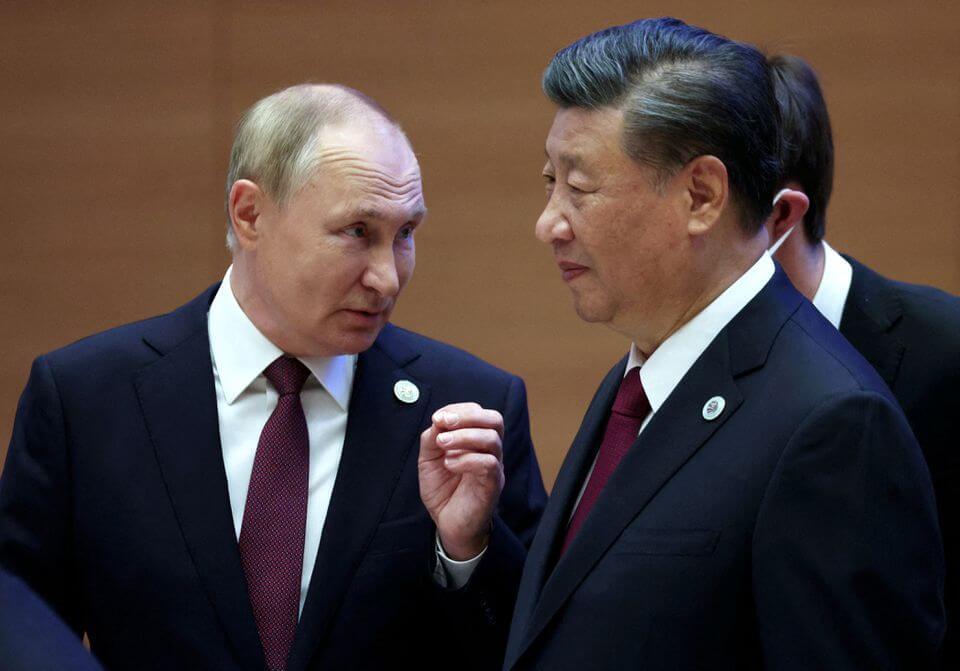In a letter to the 4th China-Russia Energy Business Forum on Tuesday, Chinese President Xi Jinping stated that “China is ready to work with Russia to forge closer partnership in energy cooperation.”
“Energy cooperation is an important cornerstone of practical cooperation between China and Russia, and also a positive force for maintaining global energy security,” Xi noted, according to Chinese state-owned outlet Xinhua.
He assured that China “stands ready to join hands with Russia to push for clean and green energy development, and safeguard international energy security and the stability of industrial and supply chains, thereby making new contributions to the long-term, healthy and sustainable development of the global energy market.”
#Latest Chinese President Xi Jinping on Tuesday sent a congratulatory letter to the 4th #China-#Russia Energy Business Forum. Xi said China is ready to work with Russia to forge closer energy cooperation partnership and promote clean and green energy development.
— Zhang Meifang张美芳 (@CGMeifangZhang) November 29, 2022
Xi also remarked that despite the current challenges facing both China and Russia, “the two countries have strengthened communication and coordination and pushed forward major cooperation projects, which have demonstrated strong resilience of China-Russia energy cooperation and broad prospects of the China-Russia comprehensive strategic partnership of coordination for a new era.”
In his greetings to the forum, Russian President Vladimir Putin stated that the ties between the two countries “continue to develop steadily,” despite a “complicated international situation.”
“At the same time, energy invariably remains one of the key and most dynamic spheres of our economic cooperation,” he noted.
This comes against the backdrop of the European Union’s (EU) ban on Russian oil imports coming into effect by 5 December; the bloc is also considering imposing a price cap on Russian natural gas. In response, Russia vowed to re-route energy supplies to Asian and African countries, which do not support a price cap.
Xi Jinping's remarks focus on three areas of China-Russia energy sector cooperation: Clean and green energy development, maintenance of energy security and stability of industrial supply chains
— Samuel Ramani (@SamRamani2) November 29, 2022
Likely a symbolic show of solidarity as the EU deliberates on a Russian oil price cap
China has firmly opposed unilateral sanctions against Russia and has refused to partake in any price caps. In fact, it has increased its energy imports drastically this year. It became the biggest consumer of Russian crude this year, with some sources saying that Beijing continues to pressure Moscow into giving steep discounts on its crude exports.
China’s imports of Russian oil and gas more than doubled than last year to $10.2 billion last month. In this respect, Russian Deputy Minister Alexander Novak revealed at the forum on Tuesday that Russian energy exports to China rose in value by 64% and 10% in volume this year, with Russia becoming the world’s fourth-largest yuan trading centre. To this end, Bloomberg reported earlier this month that Russian energy imports to China have increased from $35 billion to $60 billion.
“Our relations are built on the principles of equality and are characterised by stability and openness,” Novak stressed, adding that Russia appreciates “the position of friendly China, which is consistently and adamantly opposed to unilateral sanctions” and expressed hope that Beijing “will continue to take an independent stance on this issue.”
The most intriguing aspect is that this would confirm that the Russians and Chinese are working indeed on a Swift-alternative interbank exchange system.
— Gurbaksh Singh Chahal (@gchahal) November 29, 2022
Novak also disclosed that the two countries are planning to establish a new payment system to avoid using the SWIFT payment system, saying this will “prevent risks and promote the transition of the ruble and yuan into the status of world reserve currencies.” The EU imposed an embargo on Russian companies using the SWIFT payment network as part of its sanctions related to Russia’s invasion of Ukraine.
Similarly, Russian state-owned oil company Rosneft Chief Executive Officer (CEO) Igor Sechin said bilateral trade between the two nations is expected to reach $180-190 billion this year. Rosneft is responsible for 7% of Chinese oil needs and its Vostok Oil project “guarantees long-term safe and guaranteed energy supplies to the growing Asian economies” and would thus avoid price volatility, remarked Sechin.
Sechin also said that Chinese investors were welcome to join the Northern Sea Route, or the Arctic shipment route, in place of the Suez Channel. Deputy Transport Minister Alexander Poshivai noted that Moscow wants Beijing to recognise “the insurance certificates of Russian companies that insure maritime transportation, as well as certificates of reinsurance of maritime transportation risks, documents guaranteeing financial coverage of risks.”
Other anonymous Russian officials have revealed that Russia is interested in including China in the Ust-Luga energy project on the Baltic Sea as well, to potentially export liquefied natural gas (LNG) to Beijing. China has been increasing its imports of LNG and recently signed a $60 billion, 27-year-long deal with Qatar.

